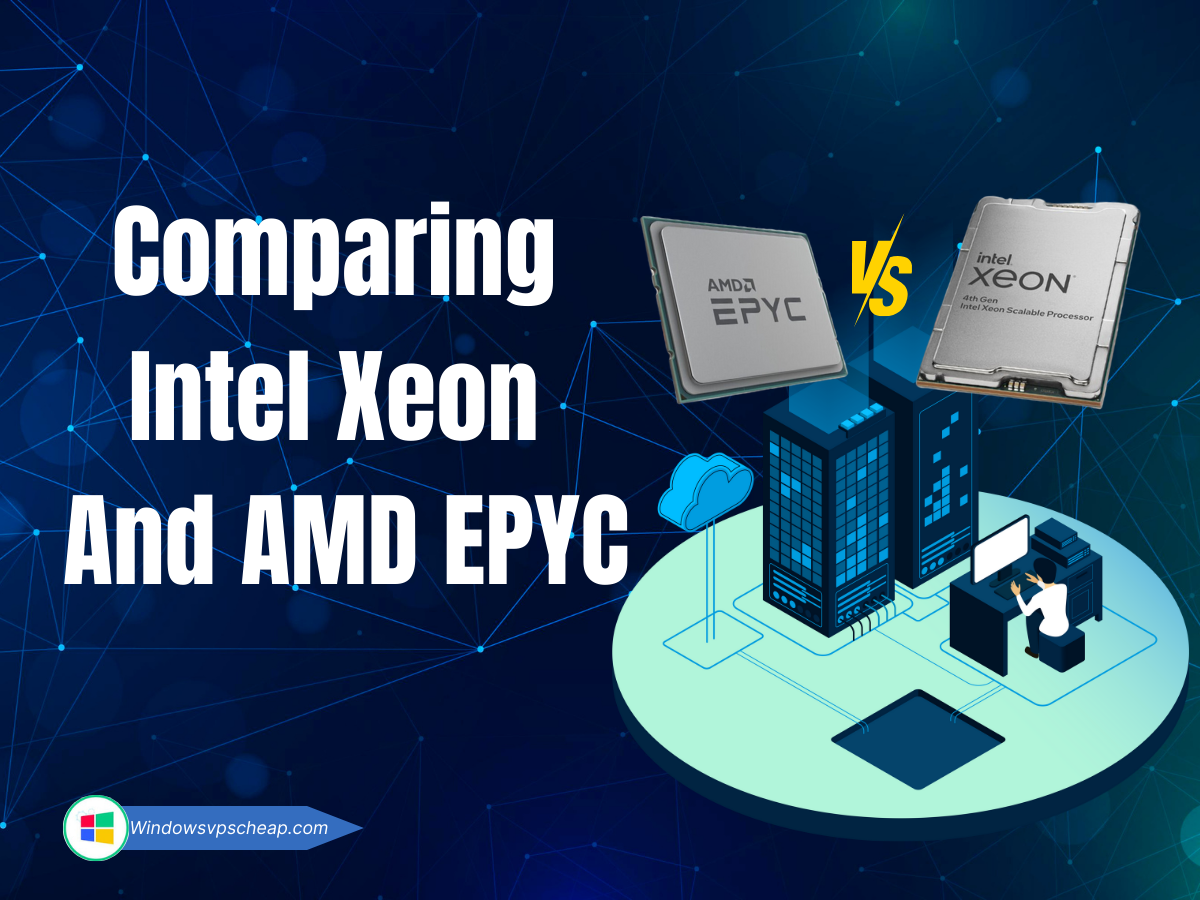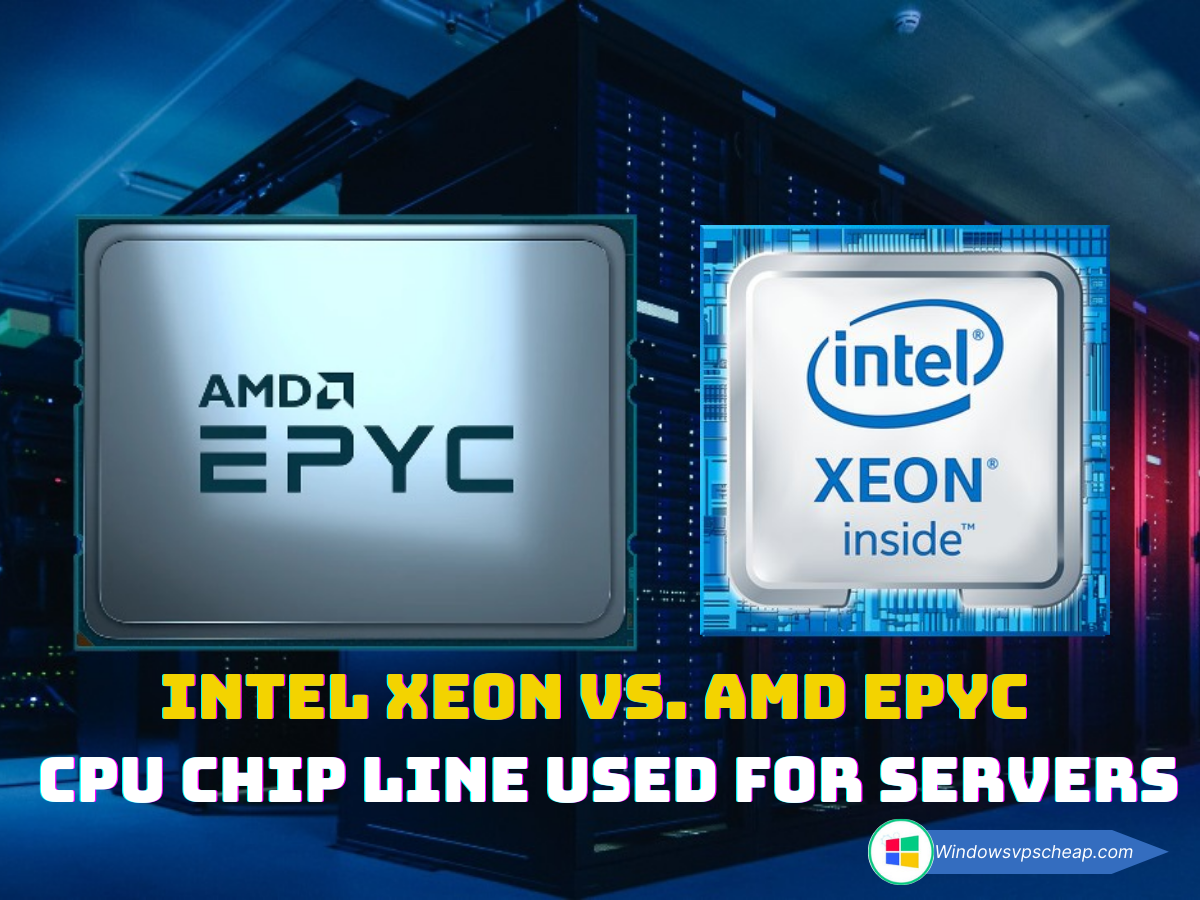In the realm of server CPUs, two titans dominate the landscape: Intel Xeon and AMD EPYC. Both series offer robust solutions for data centers, cloud computing, and enterprise-level applications. This article delves into the key features, performance metrics, and use cases of these powerful processors to help you make an informed decision for your server needs.
Intel Xeon: The Workhorse of Data Centers
Overview
Intel Xeon processors have long been the gold standard in server technology. Known for their reliability, scalability, and performance, Xeon CPUs power a significant portion of the world’s data centers.
Key Features
1. Advanced Security: Intel Xeon processors come with built-in security features such as Intel Software Guard Extensions (SGX) and Intel Threat Detection Technology (TDT), which provide hardware-based security for applications.
2. Scalability: The Xeon series offers a broad range of models, from single-socket solutions to multi-socket configurations, allowing for flexible scaling.
3. Performance Optimization: Intel’s Turbo Boost Technology and Hyper-Threading enhance performance by dynamically adjusting processing power based on the workload.
Performance Metrics
- Clock Speed: Intel Xeon CPUs typically offer higher clock speeds, which translates to faster single-threaded performance.
- Core Count: The latest Xeon models feature up to 56 cores per processor, enabling them to handle highly parallelized tasks efficiently.
- Cache Size: With up to 77 MB of L3 cache, Xeon processors can swiftly manage large data sets.
Use Cases
Intel Xeon processors are ideal for:
- Enterprise Servers: Supporting mission-critical applications and databases.
- High-Performance Computing (HPC): Providing the computational power needed for scientific research and simulations.
- Virtualization: Efficiently managing multiple virtual machines in cloud environments.
AMD EPYC: The Disruptor in Server Technology
Overview
AMD’s EPYC processors have emerged as formidable competitors to Intel Xeon, offering impressive performance, innovative architecture, and cost-effectiveness. EPYC CPUs are designed to meet the demands of modern data centers and cloud services.
Key Features
1. High Core Count: EPYC processors boast a higher core count per socket, with up to 96 cores in the latest models, providing exceptional parallel processing capabilities.
2. Memory Bandwidth: AMD EPYC offers superior memory bandwidth, which is crucial for memory-intensive applications.
3. PCIe 4.0 Support: EPYC CPUs support PCIe 4.0, offering double the bandwidth of PCIe 3.0, enhancing data transfer rates for connected devices.
Performance Metrics
- Core Density: AMD EPYC leads in core density, making it suitable for dense, multi-threaded workloads.
- Energy Efficiency: EPYC processors are designed with energy efficiency in mind, offering lower power consumption per core compared to Xeon.
- Integrated Security: Features like Secure Encrypted Virtualization (SEV) and Secure Memory Encryption (SME) provide robust security for virtualized environments.
Use Cases
AMD EPYC processors excel in:
- Cloud Computing: Delivering high-density and cost-effective solutions for cloud service providers.
- Big Data Analytics: Handling large-scale data processing and real-time analytics efficiently.
- Web Hosting: Supporting high-traffic websites and applications with superior performance and scalability.
Comparing Intel Xeon and AMD EPYC
Price-to-Performance Ratio
AMD EPYC often provides a better price-to-performance ratio, particularly for applications requiring high core counts and memory bandwidth. However, Intel Xeon processors may offer better performance for single-threaded applications due to their higher clock speeds.
Ecosystem and Compatibility
Intel has a more established ecosystem with broader compatibility across various software and hardware platforms. AMD has been closing this gap, but Intel’s long-standing relationships with enterprise vendors provide an edge.
Innovation and Future Outlook
Both Intel and AMD are continually innovating. Intel is focusing on integrating AI and machine learning capabilities directly into their CPUs, while AMD is pushing the envelope with higher core counts and advanced security features.

Conclusion
Choosing between Intel Xeon and AMD EPYC depends on your specific needs and workload requirements. Intel Xeon is a solid choice for enterprises seeking proven performance and broad compatibility, while AMD EPYC offers compelling advantages in core density, memory bandwidth, and cost efficiency. By carefully evaluating your server’s demands, you can select the processor that best aligns with your performance and budgetary goals.
For businesses navigating the complexities of modern server infrastructure, both Intel Xeon and AMD EPYC provide reliable and powerful options to support a wide range of applications, from virtualization and cloud computing to high-performance computing and big data analytics.
For more insights into the latest technology trends and hardware reviews, stay tuned to our blog. If you have any questions or need personalized advice, feel free to reach out to our support team.
>>> You may be interested in: What is DDR5 RAM? Comparing DDR5 RAM and DDR4 RAM
CATEGORY:Knowledge

